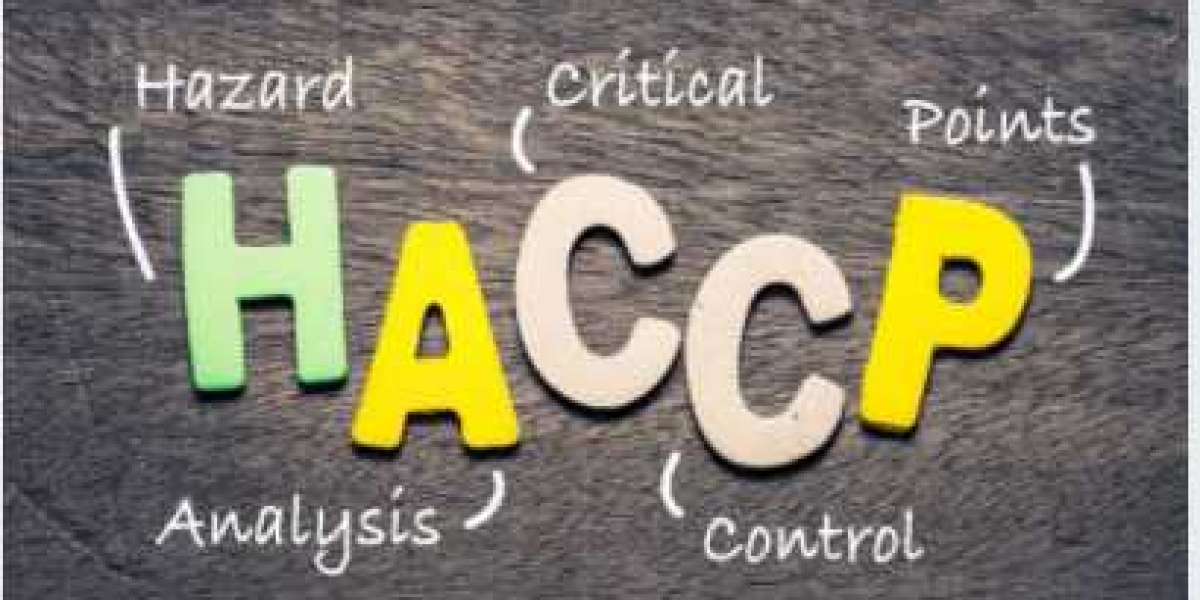You’re a vendor of food ingredients, supplying spices, oils, or grains to kitchens and factories worldwide. Ever feel like one contaminated batch could tank your reputation or cost you a big client? That’s where HACCP certification comes in—a must-have that proves your ingredients are safe and your business is rock-solid. For ingredient vendors aiming to protect customers and grow, this certification is your ticket to trust and success. Let’s unpack why HACCP certification matters and how it can make your supply chain a gold standard in food safety.
HACCP—Hazard Analysis and Critical Control Points—is a science-based system to prevent food safety risks, from microbial contamination to allergen mix-ups. HACCP certification trains you to build a plan that keeps your ingredients safe, whether you’re sourcing herbs or distributing flour. It’s about more than dodging recalls—it’s about building confidence. Ready to see how it can elevate your ingredient game?
What’s the Deal with HACCP Certification?
So, what’s HACCP certification all about? It’s a focused training that teaches you to spot and control food safety hazards before they become disasters. Think of it like a recipe for bulletproof ingredients—catching risks like improper storage or contamination early. It’s not about piling on paperwork; it’s about making safety a seamless part of your supply chain.
Most HACCP certification courses take a few days, blending practical lessons with real-world scenarios. You’ll learn to identify hazards, set critical controls, and keep your processes tight. By the end, you’re not just certified—you’re ready to lead your team through inspections and keep customers safe. And honestly, there’s something pretty empowering about knowing your ingredients are worry-free.
Why Ingredient Vendors Need HACCP Certification
Let’s keep it real. If you’re supplying food ingredients, HACCP certification is your lifeline. It’s a must for meeting regulations in industries like food manufacturing, restaurants, or retail, where safety is non-negotiable. Whether you’re providing spices to a local eatery or grains to a global brand, this certification sets you apart.
Why should you care? Here’s the scoop:
- Regulatory Compliance: HACCP is required by the FDA, USDA, and global standards—certification keeps you in the clear.
- Customer Trust: A HACCP plan shows buyers your ingredients are safe, turning them into loyal partners.
- Risk Reduction: Catch hazards early to avoid recalls, health scares, or costly downtime.
- Market Edge: Certified vendors win contracts and shelf space in competitive markets.
Ever felt that rush when your ingredients pass a tough inspection with flying colors? That’s what HACCP certification sets you up for—being the one who delivers safe, reliable products every time.
What You’ll Learn (And Why It’s Not Just Dull Theory)
HACCP certification isn’t about memorizing rules (though you’ll know them cold). It’s about building practical skills to keep ingredients safe. You’ll learn to:
- Spot Hazards: Identify risks—like bacteria in spices or allergens in flour—before they reach customers.
- Set Controls: Establish critical points, like storage temperatures or supplier checks, to prevent issues.
- Monitor Effectively: Create systems to track controls, ensuring nothing slips through.
- Handle Crises: Develop plans for when things go wrong, like contamination or supply chain disruptions.
Here’s the fun part: you get hands-on practice. Most courses include case studies, like drafting a HACCP plan for a spice supplier or troubleshooting a grain processing line. It’s like solving a food safety mystery—practical, engaging, and way more interesting than you’d expect.
A Quick Detour: Why This Matters in 2025
Let’s take a step back. It’s August 2025, and food safety is under a microscope. Just last month, a supplier faced a recall after contaminated ingredients hit the market, shaking consumer trust. Regulators are cracking down, and buyers are demanding transparency. HACCP certification is your anchor, ensuring your ingredients are safe and your business stays strong.
Here’s the thing: the food industry is global now. Your ingredients might end up in dishes from New York to Tokyo, and clients expect safety no matter where they are. HACCP certification equips you to meet those demands, whether you’re supplying local restaurants or exporting overseas. You’re not just preventing hazards—you’re building a brand that shines worldwide.
What to Expect During HACCP Certification Training
Picture this: You sign up for a HACCP certification course, maybe online from your warehouse or in a room with other ingredient pros. The training starts with the seven HACCP principles—hazard analysis, critical control points, and record-keeping. Sounds technical, but trainers make it relatable with examples, like how a nut supplier used HACCP to prevent allergen contamination.
You’ll dive into practical exercises, like building a HACCP plan for a mock oil supplier or analyzing a sugar processing line for risks. Maybe you’ll set controls for safe storage or troubleshoot a packaging issue. It’s fast-paced, hands-on, and built for real-world challenges. Most courses end with a test—don’t sweat it, practice sessions make it manageable. Finish, and you’re ready to lead food safety with confidence.
Choosing the Right HACCP Certification Course
Not all HACCP certification courses are created equal, so picking the right one matters. Look for programs accredited by the International HACCP Alliance for credibility. Some are in-person, others online or self-paced, so you can choose what fits your schedule. Check for interactive elements—like videos or case studies—that keep you engaged.
Here’s a tip: don’t just pick the cheapest HACCP certification. A solid course might cost more but will leave you ready to tackle real challenges. Ask colleagues or check forums like Food Safety Magazine for recommendations. If you’re juggling supply runs, a self-paced online course with mobile access can be a lifesaver—just make sure it’s practical and keeps you hooked.
The Emotional Reward: Why This Feels So Good
Let’s talk about the heart of it. HACCP certification isn’t just about rules—it’s about people. When you implement a HACCP plan, you’re telling customers, “Your safety comes first.” You’re telling your team, “Your work protects lives.” That’s huge. It’s the kind of achievement that makes you proud to lead your operation.
Sure, there’ll be challenges. Staff might grumble about new protocols, or tight schedules might make training feel like a stretch. But with HACCP certification, you’ll learn to navigate those hurdles, turning skeptics into team players. And when you see your ingredients trusted by chefs or praised by buyers for safety? That’s a win that hits deep.
Getting Started with HACCP Certification (Without Stumbling)
Ready to make HACCP certification a reality? Here’s how to get started:
- Know the Basics: Skim HACCP principles beforehand. Free resources from the FDA or International HACCP Alliance can give you a head start.
- Set Your Goals: Are you aiming to ace inspections, expand markets, or train your team? Your focus shapes the training.
- Engage Your Team: Share what you learn to build a safety-first culture in your supply chain.
- Stay Curious: Don’t just follow the steps—understand why they matter. Why does that control stop contamination? Dig in.
One mistake to avoid? Don’t treat HACCP certification like a box to check. It’s tempting to rush through training, but the real value lies in applying it to your ingredients. Ask questions, test scenarios, and make it real for your business.
A Seasonal Nod: Why Now’s the Perfect Time
Here’s a thought: it’s August 2025, and food vendors are gearing up for the holiday rush—think Thanksgiving, Christmas, and new product launches. Starting HACCP certification now positions you to shine when demand spikes. Safe ingredients mean fewer risks and happier clients during peak season. Plus, with clean-label and safety trends dominating, certification gives you a head start. Why wait to make safety your superpower?
Your Next Step Awaits
So, here’s the deal. HACCP certification isn’t just a requirement—it’s your chance to protect your brand, your customers, and your future. It’s about building a supply chain that delivers safe ingredients every time. What’s holding you back? Maybe it’s the time or the cost. But let’s be honest: a few days of HACCP certification could save you from a recall and set you up for years of success.
You’re not just learning a system—you’re becoming the leader who keeps food safe. So, take the leap. Sign up for a HACCP certification course, show up ready to learn, and get ready to lead with confidence. Your business—and your customers—will thank you.


